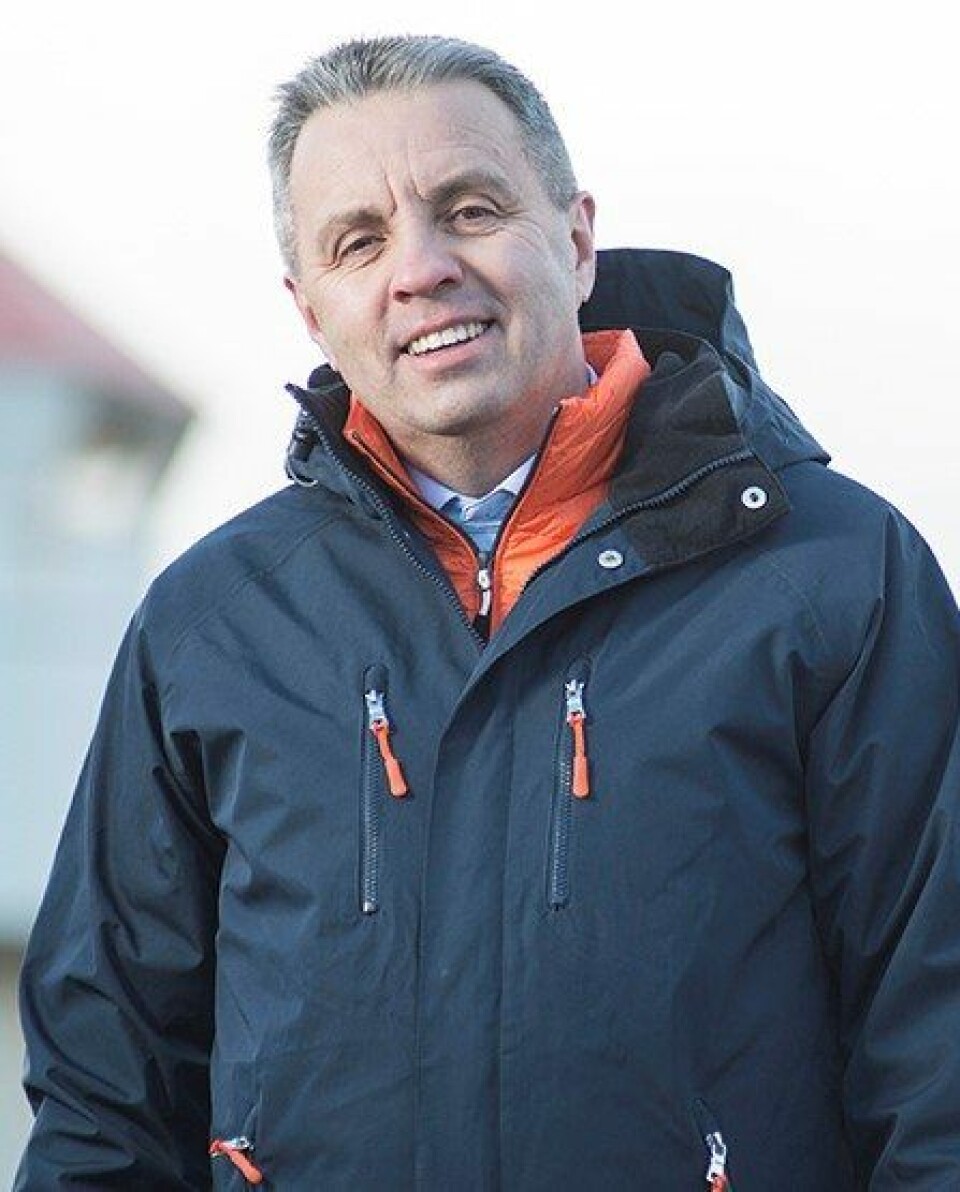
Green light for Europe’s biggest on-land salmon farm
Plans for Europe’s biggest land-based fish farm have today been given the go-ahead by councillors in Norway’s Møre og Romsdal county.
Salmon Evolution’s proposed NOK3 billion (£279m) facility will have a maximum standing biomass of 13,300 tonnes and an annual salmon output of 28,800 tonnes.
The first construction stage is planned to be completed by 2021. The company expects the plant, on the peninsula of Indre Harøy in Fræna local authority, to create 80 jobs.

“We’re extremely pleased that the licence is in place and that work on realising this project can continue,” said Salmon Evolution managing director Ingjarl Skarvøy. “We’ve had a good dialogue with those involved while our application has been under consideration and have received much positive response to our concept.”
Bring innovation
Tove Henøen, chair of Fræna council, said: “This land-based farm will put Møre og Romsdal on the map in the development of Norwegian aquaculture from a sustainable perspective.
“It’ll give the region valuable expertise and new jobs and will bring innovation and the development of exciting projects in its wake.”
Skarvøy said land-based fish farming would open new opportunities for exploiting marine resources, sludge and waste, either in a biogas plant or as fertiliser and soil improvers.
He sees a big potential in using the heat in waste water from the huge Nyhamna offshore gas processing plant situated on the island of Gossa, a couple of kilometres south of Indre Harøy.
“Our concept on land creates opportunities to exploit existing resources in completely new ways, which in this case, both includes reusing energy and creating an optimum environment for the salmon with a stable temperature year-round,” said Skarvøy.
Although the Salmon Evolution plant would be Europe’s largest land farm to date, Skarvøy said: “We’re not so concerned about being the biggest. What we do will be for the benefit of the fish and the environment and create good conditions for a sustainable industry.”
Long-term partners
He is confident the company can attract the investment necessary to meet the huge cost of the project.
“We haven’t approached possible investors yet, but have noted great interest in the project,” said Skarvøy. “We want long-term partners and investors who can help to develop our business model and a sustainable change of pace in salmon farming.
“The pace of innovation in the aquaculture sector is high, and our nation is the world leader for traditional cage-based farming in the sea, closed systems, more offshore-related solutions and land-based concepts. So, the level of interest is understandable – a lot of people want to participate in this adventure.”























































